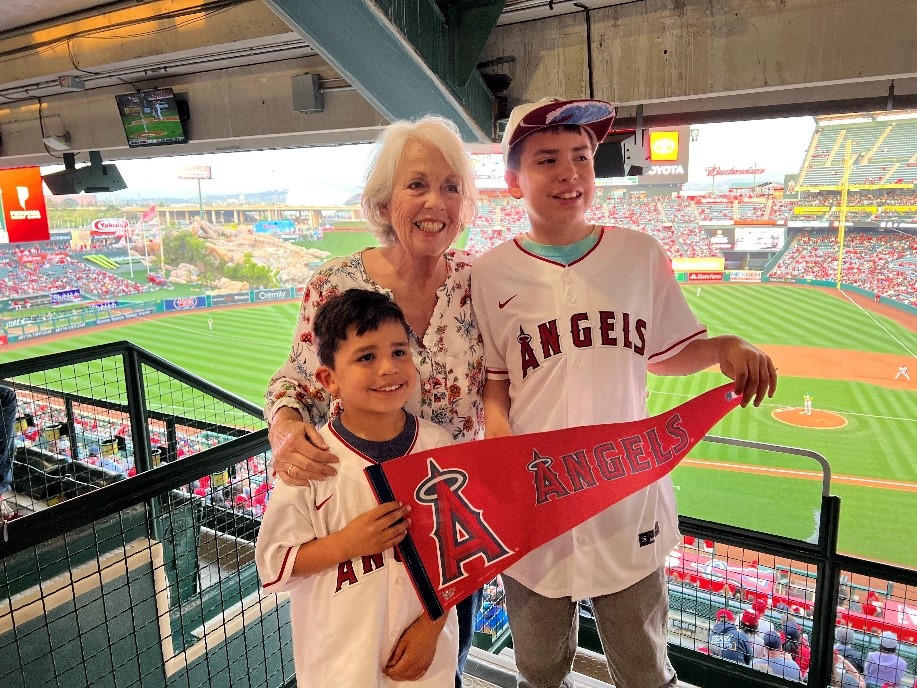
Heart disease is the No. 1 killer of women in the United States, affecting about eight million women total. Each year, six times as many women die of cardiovascular disease than of breast cancer.
Terri was diagnosed with valvular heart disease in her early 20s. Terri had a family history of heart disease, so when she started noticing shortness of breath and fatigue, she knew that she couldn’t ignore it.
Aortic valve disease is a type of heart valve disease when the valve between the left ventricle and the main artery to the body (aorta) does not function properly. This valve opens and closes each time the heart beats, allowing blood to flow out of the heart while preventing blood from flowing back in. Valvular heart disease requires transcatheter or minimally invasive surgical approaches to improve blood flow, relieve symptoms of heart failure, and prevent further damage to the heart.
Eventually, Terri underwent aortic valve replacement, and for younger people with a valve replacement, the need for additional surgery later in life is highly likely.
Now in her 70s, Terri began noticing that once again she was very short-winded throughout her everyday activities and met with her doctor to discuss her symptoms and next steps.
Terri was found to have both aortic and mitral valve disease and was referred to Marc Sakwa, M.D., chief of cardiovascular surgery, MemorialCare Heart & Vascular Institute.
The mitral valve is the passageway between your left atrium and left ventricle. Your left ventricle has an important job of pumping blood out to the rest of your body, but if you have mitral valve disease, it’s harder for the valve to get this job done. Over time, the strain can lead to heart and lung damage.
Terri’s case was reviewed through the MemorialCare Heart & Vascular Institute. Valve Clinic, where cardiologists, interventional cardiologists, cardiac surgeons and cardiovascular imaging specialists come together to review and discuss each case. They review family history, clinical history, images of the heart and work together to determine the best course of treatment. After the meeting, it was determined Terri needed an aortic and mitral valve replacement.
The complex redo valve operation performed by Dr. Sakwa was a success.
“Redo surgical aortic and mitral valve replacement is a demanding procedure with high operative risk,” said Dr. Sakwa. “But it is the standard treatment for patients with a history of valve surgery, like Terri, who experience recurrent valve pathologies. We have better technologies now to do these high-risk procedures for patients.”
The team of highly skilled specialists at the MemorialCare Heart & Vascular Institute at Long Beach Medical Center, work together to determine the best course of treatment. Terri’s case is an excellent example of how the highly skilled and experienced cardiac surgeons at Long Beach Medical Center treat complex heart conditions and deliver high-quality care for patients.
The MemorialCare Heart & Vascular Institute at Long Beach Medical Center is further distinguished as a leading heart and vascular institute with renowned specialists that utilize innovative techniques for advanced, minimally invasive heart and vascular procedures. The high-quality care allows patients to benefit from faster recoveries, fewer complications, greater comfort and less scarring.
“I’ve been a patient at Long Beach Medical Center for the past 30 years and they’ve always made me feel like family,” says Terri. “The doctors and medical team provided outstanding care making me feel at ease during all phases of my double heart valve replacement procedure. Looking back, I am so glad I had the procedure done.”
Post-surgery, Terri spends time with her grandkids, enjoys attending Angels’ baseball games, and continues her everyday activities with her energy levels back to normal.
Terri encourages women to not ignore symptoms of heart disease and to know their risk factors. She volunteered for the Healing Hearts program at MemorialCare Long Beach Medical Center for 31 years, inspiring patients on their journey to wellness.
“Before moving away, I appreciated that I was able to give back to the hospital that gave so much to me. By volunteering with the Healing Hearts program at MemorialCare Heart & Vascular Institute, I could relate to patients and create a positive impact on their healing journey. Spending time with patients, giving them extra encouragement and support is what brought me joy,” continued Terri.